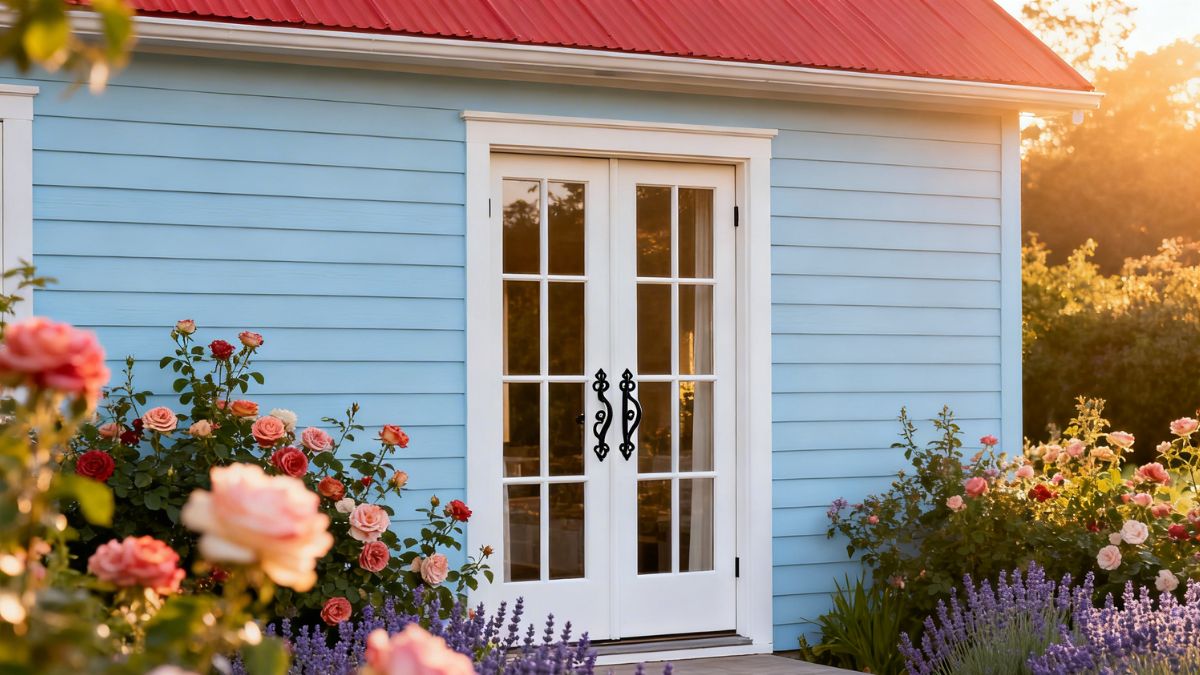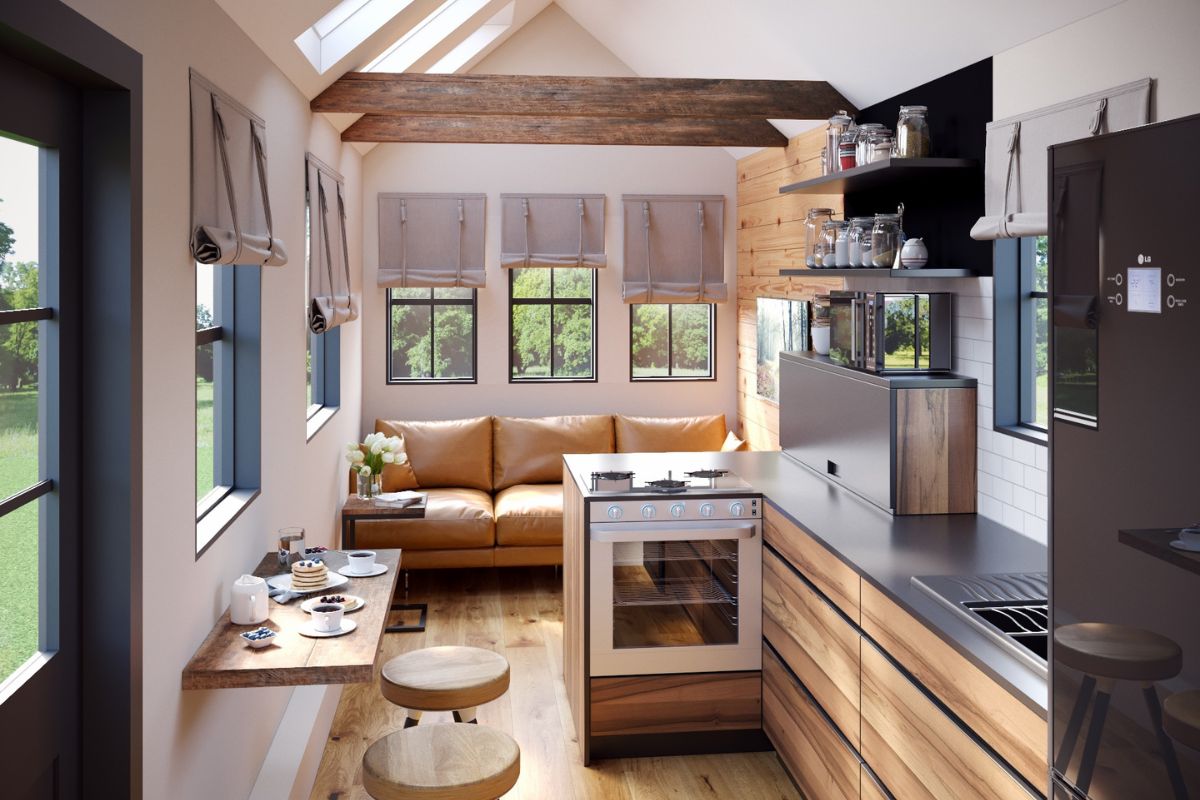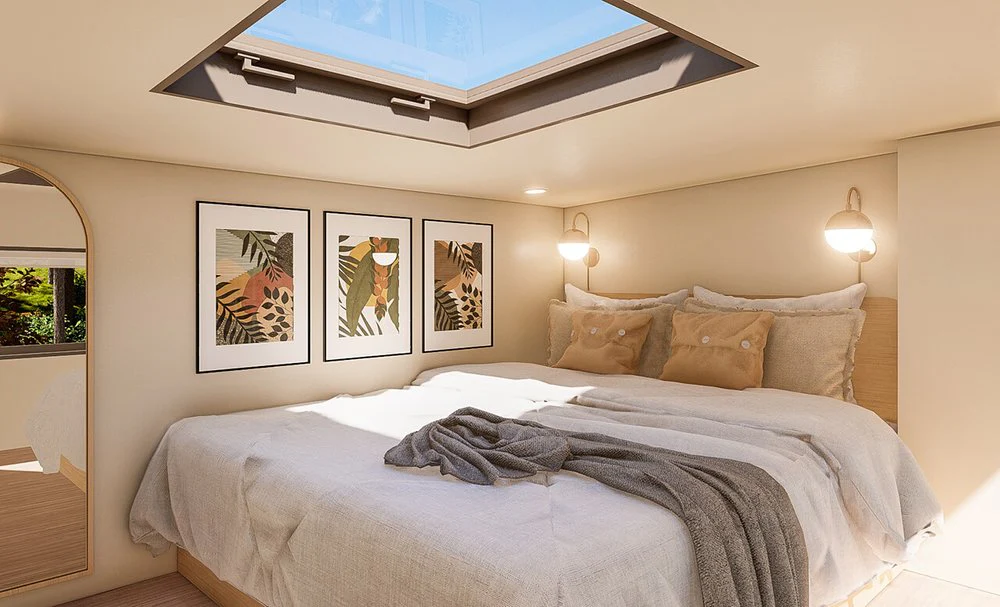Off Grid Solar & Wind Power DIY Systems (with Patrick Hiebert)

Image Source: Canva
In the quest for sustainability and independence, off-grid power systems are not just a luxury but a necessity for many seeking freedom from conventional energy grids. These systems, powered by the sun and wind, offer an eco-friendly alternative to traditional power sources, providing a reliable and renewable means of energy for homes and communities.
- Off-grid systems are essential for sustainability and independence.
- Balancing power generation and consumption is key in off-grid living.
- Smart design and appliance choices significantly reduce energy use.
- Off-grid living combines technology, sustainability, and mindset.
Patrick, an experienced advocate for off-grid living and a key figure in the creation of self-sustaining communities, shares his insights and expertise in developing these systems.
Background and Philosophy
Ecovillages, as introduced by Patrick, isn't just a term but the embodiment of a philosophy aimed at creating self-sustaining communities.
The FIRST certification—standing for Freedom, Independence, Resiliency, Sustainability, and Transparency—guides their development projects across Latin America.
"We're not just creating homes; we're fostering communities that embody the spirit of independence and sustainability," Patrick notes, highlighting the drive behind their initiatives.

Key Components of Off-Grid Systems
At the core of any off-grid system are solar panels, wind turbines, battery storage, and inverter chargers. These components work in harmony to harness natural energy and convert it into usable power for daily needs.
“It's a balance of production and conservation," Patrick explains, emphasizing that the success of an off-grid system relies not just on generating power but also on efficiently using it.
He stresses the importance of smart living habits to reduce power consumption, thereby requiring a smaller and more cost-effective system.
Designing Your Off-Grid System
Designing an off-grid system requires careful consideration of your energy needs. Patrick shares, "Every home is unique, and so is its energy consumption. By understanding your daily power usage, you can tailor an off-grid system that meets your needs without excess."
He suggests starting with a basic setup that can be expanded as necessary. For example, a small home might begin with a modest array of solar panels and a single battery, with options to add more as energy needs or financial resources increase.
Smart Power Usage and Conservation
Efficient power usage is pivotal in off-grid living. Patrick points out that "Heating and cooling are your biggest enemies in terms of power consumption."
Opting for energy-efficient appliances, LED lighting, and smart design features like thermal mass for passive heating or cooling can significantly reduce your energy footprint.
"Every bit of power you save is a bit you don't have to generate," says Patrick, highlighting the dual focus on generating renewable energy and minimizing consumption.
The Realities of Living Off-Grid
Living off-grid, according to Patrick, is a liberating experience.
He reminisces about his time living on a sailboat with his son, a period that honed his appreciation for sustainable living. "It's about more than just saving on bills; it's about creating a lifestyle that's in harmony with the environment," he shares.
This experience influenced his approach to designing off-grid homes that do not compromise on comfort or luxury, proving that sustainable living does not have to mean sacrificing modern conveniences.
.jpg)
Practical Advice for DIY Off-Grid Systems
For those embarking on their off-grid journey, Patrick offers practical advice: "Start small and scale up."
He suggests beginning with the essential components and expanding as you become more comfortable with the system and more aware of your energy needs.
"The beauty of off-grid systems is their modularity. You can always add more panels or another battery if needed," he says, encouraging a flexible approach to building your system.
One of the most crucial aspects of living off-grid is being mindful of your energy consumption. "It becomes a sort of game, trying to optimize your usage and get the most out of your system," Patrick remarks, noting how technology now allows homeowners to monitor their energy use in real time.
This not only helps in managing power more effectively but also in understanding the impact of daily habits on overall consumption.
Conclusion
Off-grid solar and wind power systems represent the convergence of technology, sustainability, and independence. Patrick's insights underscore the importance of not only harnessing renewable energy but also adopting a lifestyle that respects and complements these systems.
The path to off-grid living is as much about mindset as it is about technology if you’re interested in this sustainable journey to explore the possibilities and join the growing community of individuals seeking a more autonomous and eco-friendly way of life.
By embracing the principles of freedom, independence, resiliency, sustainability, and transparency, individuals can create not just homes but lifestyles that are in tune with the environment, offering a promising direction for the future of energy consumption and conservation.







.jpg)

